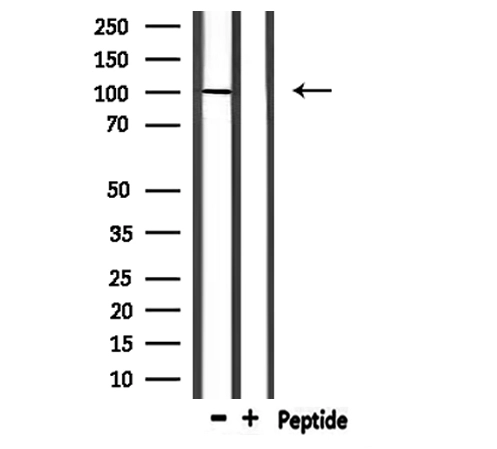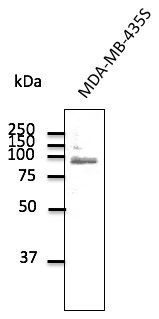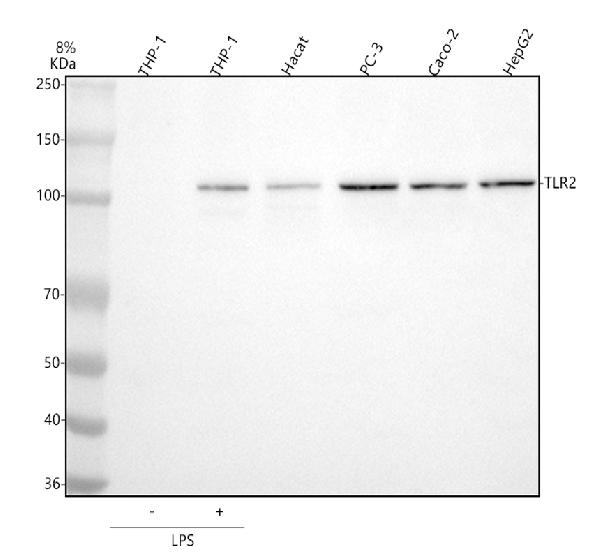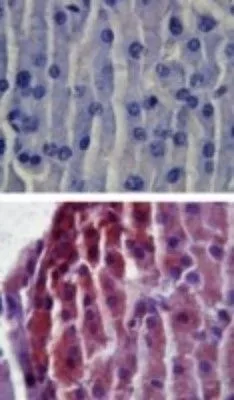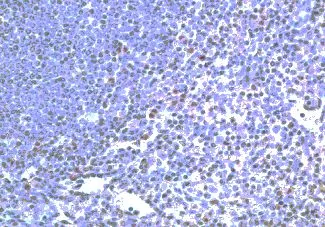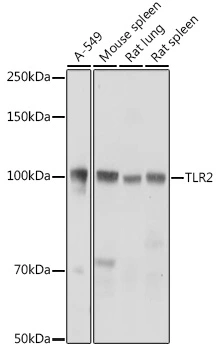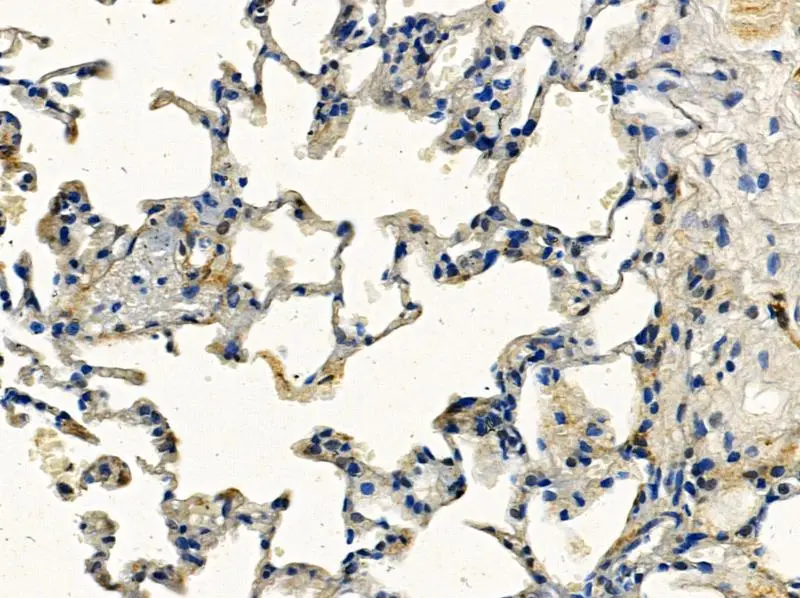
IHC-P analysi of rat lung tissue using GTX04732 TLR2 antibody. Antigen retrieval : Heat mediated citrate buffer Dilution : 1:100
TLR2 antibody
GTX04732
ApplicationsWestern Blot, ImmunoHistoChemistry, ImmunoHistoChemistry Paraffin
Product group Antibodies
TargetTLR2
Overview
- SupplierGeneTex
- Product NameTLR2 antibody
- Delivery Days Customer9
- Application Supplier NoteWB: 1:500-1:2000. IHC-P: 1:50-1:200. *Optimal dilutions/concentrations should be determined by the researcher.Not tested in other applications.
- ApplicationsWestern Blot, ImmunoHistoChemistry, ImmunoHistoChemistry Paraffin
- CertificationResearch Use Only
- ClonalityPolyclonal
- Concentration1 mg/ml
- ConjugateUnconjugated
- Gene ID7097
- Target nameTLR2
- Target descriptiontoll like receptor 2
- Target synonymsCD282; TIL4; toll/interleukin-1 receptor-like protein 4; toll-like receptor 2
- HostRabbit
- IsotypeIgG
- Protein IDO60603
- Protein NameToll-like receptor 2
- Scientific DescriptionThe protein encoded by this gene is a member of the Toll-like receptor (TLR) family which plays a fundamental role in pathogen recognition and activation of innate immunity. TLRs are highly conserved from Drosophila to humans and share structural and functional similarities. This protein is a cell-surface protein that can form heterodimers with other TLR family members to recognize conserved molecules derived from microorganisms known as pathogen-associated molecular patterns (PAMPs). Activation of TLRs by PAMPs leads to an up-regulation of signaling pathways to modulate the hosts inflammatory response. This gene is also thought to promote apoptosis in response to bacterial lipoproteins. This gene has been implicated in the pathogenesis of several autoimmune diseases. Alternative splicing results in multiple transcript variants. [provided by RefSeq, Jan 2016]
- Storage Instruction-20°C or -80°C,2°C to 8°C
- UNSPSC12352203

